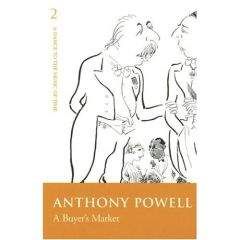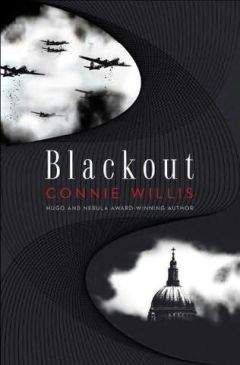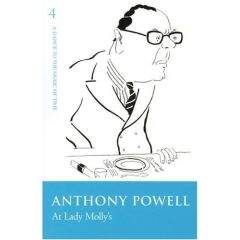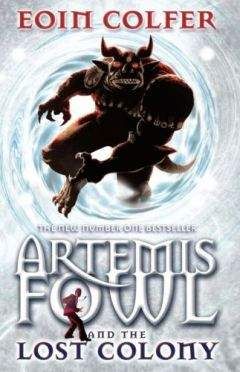W. Ainsworth - Rookwood
Leading their horses, the party took their way through the trees. A few minutes' walking brought them in sight of the gipsy encampment, the spot selected for which might be termed the Eden of the valley. It was a small green plain, smooth as a well-shorn lawn, kept ever verdant (save in such places as the frequent fires had scorched its surface) by the flowing stream that rushed past it, and surrounded by an amphitheatre of wooded hills. Here might be seen the canvas tent with its patches of varied colouring; the rude-fashioned hut of primitive construction; the kettle slung
Between two poles, upon a stick transverse
the tethered beasts of burden, the horses, asses, dogs, carts, caravans, wains, blocks, and other movables and immovables belonging to the wandering tribe. Glimmering through the trees, at the extremity of the plain, appeared the ivy-mantled walls of Davenham Priory. Though much had gone to decay, enough remained to recall the pristine state of this once majestic pile, and the long, though broken line of Saxon arches, that still marked the cloister wall; the piers that yet supported the dormitory; the enormous horse-shoe arch that spanned the court; and, above all, the great marigold, or circular window, which terminated the chapel, and which, though now despoiled of its painted honours, retained, like the skeleton leaf, its fibrous intricacies entire—all eloquently spoke of the glories of the past, while they awakened reverence and admiration for the still-enduring beauty of the present.
Towards these ruins Sybil conducted the party.
"Do you dwell therein?" asked Peter, pointing towards the priory.
"That is my dwelling," said Sybil.
"It is one I should covet more than a modern mansion," returned the sexton.
"I love those old walls better than any house that was ever fashioned," replied Sybil.
As they entered the Prior's Close, as it was called, several swarthy figures made their appearance from the tents. Many a greeting was bestowed upon Luke, in the wild jargon of the tribe. At length an uncouth dwarfish figure, with a shock head of black hair, hopped towards them. He seemed to acknowledge Luke as his master.
"What ho! Grasshopper," said Luke, "take these horses, and see that they lack neither dressing nor provender."
"And hark ye, Grasshopper," added Turpin, "I give you a special charge about this mare. Neither dress nor feed her till I see both done myself. Just walk her for ten minutes, and if you have a glass of ale in the place, let her sip it."
"Your bidding shall be done," chirped the human insect, as he fluttered away with his charges.
A motley assemblage of tawny-skinned varlets, dark-eyed women and children, whose dusky limbs betrayed their lineage, in strange costume, and of wild deportment, checked the path, muttering welcome upon welcome into the ear of Luke as he passed. As it was evident he was in no mood for converse, Sybil, who seemed to exercise considerable authority over the crew, with a word dispersed them, and they herded back to their respective habitations.
A low door admitted Luke and his companions into what had once been the garden, in which some old moss-encrusted apple-and walnut-trees were still standing, bearing a look of antiquity almost as venerable as that of the adjoining fabric.
Another open door gave them entrance to a spacious chamber, formerly the eating-room, or refectory of the holy brotherhood; and a goodly room it had been, though now its slender lanceolated windows were stuffed with hay, to keep out the air. Large holes told where huge oaken rafters had once crossed the roof, and a yawning aperture marked the place where a cheering fire had formerly blazed. As regarded this latter spot, the good old custom was not, even now, totally abrogated. An iron plate, covered with crackling wood, sustained a ponderous black caldron, the rich steam from which gratefully affected the olfactory organs of the highwayman.
"That augurs well," said he, rubbing his hands.
"Still hungering after the fleshpots of Egypt," said the sexton, with a ghastly smile.
"We will see what that kettle contains," said Luke.
"Handassah—Grace!" exclaimed Sybil, calling.
Her summons was answered by two maidens, habited, not unbecomingly, in gipsy gear.
"Bring the best our larder can furnish," said Sybil, "and use despatch. You have appetites to provide for, sharpened by a long ride in the open air."
"And by a night's fasting," said Luke, "and solitary confinement to boot."
"And a night of business," added Turpin—"and plaguing, perplexing business into the bargain."
"And the night of a funeral, too," doled Peter; "and that funeral a father's. Let us have breakfast speedily, by all means. We have rare appetites."
An old oaken table (it might have been the self-same upon which the holy friars had broken their morning fast) stood in the middle of the room. The ample board soon groaned beneath the weight of the savoury caldron, the unctuous contents of which proved to be a couple of dismembered pheasants an equal proportion of poultry, great gouts of ham, mushrooms, onions, and other piquant condiments, so satisfactory to Dick Turpin, that, upon tasting a mouthful, he absolutely shed tears of delight. The dish was indeed the triumph of gipsy cookery; and so sedulously did Dick apply himself to his mess, and so complete was his abstraction, that he perceived not that he was left alone. It was only when about to wash down the last drumstick of the last fowl with a can of excellent ale that he made this discovery.
"What! all gone? And Peter Bradley, too? What the devil does this mean?" mused he. "I must not muddle my brain with any more Pharaoh, though I have feasted like a King of Egypt. That will never do. Caution, Dick, caution. Suppose I shift yon brick from the wall, and place this precious document beneath it. Pshaw! Luke would never play me false. And now for Bess! Bless her black skin! she'll wonder where I've been so long. It's not my way to leave her to shift for herself, though she can do that on a pinch."
Soliloquising thus, he arose and walked towards the door.
| Contents |
"By Heaven! It is the fiend himself upon a black horse."
CHAPTER III
SYBIL
BENEATH a mouldering wall, whither they had strayed, to be free from interruption, and upon a carpet of the greenest moss, sat Sybil and her lover.
With eager curiosity she listened to his tale. He recounted all that had befallen him since his departure. He told her of the awful revelations of the tomb; of the ring that, like a talisman, had conjured up a thousand brilliant prospects; of his subsequent perils; his escapes; his rencontre with Lady Rookwood; his visit to his father's body; and his meeting with his brother. All this she heard with a cheek now flushed with expectation, now made pale with apprehension; with palpitating bosom, and suppressed breath. But when taking a softer tone, love, affection, happiness, inspired the theme, and Luke sought to paint the bliss that should be theirs in his new estate; when he would throw his fortune into her lap, his titles at her feet, and bid her wear them with him; when, with ennobled hand and unchanged heart, he would fulfil the troth plighted in his outcast days; in lieu of tender, grateful acquiescence, the features of Sybil became overcast, the soft smile faded away, and, as spring sunshine is succeeded by the sudden shower, the light that dwelt in her sunny orbs grew dim with tears.
"Why—why is this, dear Sybil?" said Luke, gazing upon her in astonishment, not unmingled with displeasure. "To what am I to attribute these tears? You do not, surely, regret my good fortune?"
"Not on your own account, dear Luke," returned she, sadly. "The tears I shed were for myself—the first, the only tears that I have ever shed for such cause; and," added she, raising her head like a flower surcharged with moisture, "they shall be the last."
"This is inexplicable, dear Sybil. Why should you lament for yourself, if not for me? Does not the sunshine of prosperity that now shines upon me gild you with the same beam? Did I not even now affirm that the day that saw me enter the hall of my forefathers should dawn upon our espousals?"
"True; but the sun that shines upon you, to me wears a threatening aspect. The day of those espousals will never dawn. You cannot make me the lady of Rookwood."
"What do I hear?" exclaimed Luke, surprised at this avowal of his mistress, sadly and deliberately delivered. "Not wed you! And wherefore not? Is it the rank I have acquired, or hope to acquire, that displeases you? Speak, that I may waste no further time in thus pursuing the shadows of happiness, while the reality fleets from me."
"And are they shadows; and is this the reality, dear Luke? Question your secret soul, and you will find it otherwise. You could not forego your triumph; it is not likely. You have dwelt too much upon the proud title which will be yours to yield it to another, when it may be won so easily. And, above all, when your mother's reputation, and your own stained name, may be cleared by one word, breathed aloud, would you fail to utter it? No, dear Luke, I read your heart; you would not."
"And if I could not forego this, wherefore is it that you refuse to be a sharer in my triumph? Why will you render my honours valueless when I have acquired them? You love me not."
"Not love you, Luke?"
"Approve it, then."
"I do approve it. Bear witness the sacrifice I am about to make of all my hopes, at the shrine of my idolatry to you. Bear witness the agony of this hour. Bear witness the horror of the avowal, that I never can be yours. As Luke Bradley, I would joyfully—oh, how joyfully!—have been your bride. As Sir Luke Rookwood"—and she shuddered as she pronounced the name—"I never can be so."
"Then, by Heaven! Luke Bradley will I remain. But wherefore—wherefore not as Sir Luke Rookwood?"
"Because," replied Sybil, with reluctance—"because I am no longer your equal. The gipsy's low-born daughter is no mate for Sir Luke Rookwood. Love cannot blind me, dear Luke. It cannot make me other than I am; it cannot exalt me in my own esteem, nor in that of the world, with which you, alas! too soon will mingle, and which will regard even me as—no matter what!—it shall not scorn me as your bride. I will not bring shame and reproach upon you. Oh! if, for me, dear Luke, the proud ones of the earth were to treat you with contumely, this heart would break with agony. For myself, I have pride sufficient—perchance too much. Perchance 'tis pride that actuates me now. I know not. But for you I am all weakness. As you were heretofore, I would have been to you the tenderest and truest wife that ever breathed; as you are now—"
"Hear me, Sybil."
"Hear me out, dear Luke. One other motive there is that determines my present conduct, which, were all else surmounted, would in itself suffice. Ask me not what that is. I cannot explain it. For your own sake, I implore you, be satisfied with my refusal."
"What a destiny is mine!" exclaimed Luke, striking his forehead with his clenched hand. "No choice is left me. Either way I destroy my own happiness. On the one hand stands love—on the other ambition; yet neither will conjoin."
"Pursue, then, ambition," said Sybil, energetically, "if you can hesitate. Forget that I have ever existed; forget you have ever loved; forget that such a passion dwells within the human heart, and you may still be happy, though you are great."
"And do you deem," replied Luke, with frantic impatience, "that I can accomplish this; that I can forget that I have loved you; that I can forget you? Cost what it will, the effort shall be made. Yet by our former love, I charge you tell me what has wrought this change in you? Why do you now refuse me?"
"I have said you are Sir Luke Rookwood," returned Sybil, with painful emotion. "Does that name import nothing?"
"Imports it aught of ill?"
"To me, everything of ill. It is a fated house. Its line are all predestined."
"To what?" demanded Luke.
"To murder!" replied Sybil, with solemn emphasis. "To the murder of their wives. Forgive me, Luke, if I have dared to utter this. Yourself compelled me to it."
Amazement, horror, wrath, kept Luke silent for a few moments. Starting to his feet, he cried:
"And can you suspect me of a crime so foul? Think you, because I shall assume the name, that I shall put on the nature likewise of my race? Do you believe me capable of aught so horrible?"
"Oh, no, I believe it not. I am sure you would not do it. Your soul would reject with horror such a deed. But if Fate should guide your hand, if the avenging spirit of your murdered ancestress should point the steel, you could not shun it then."
"In Heaven's name! to what do you allude?"
"To a tradition of your house," replied Sybil. "Listen to me, and you shall hear the legend." And with a pathos that produced a thrilling effect upon Luke, she sang the following ballad:
THE LEGEND OF THE LADY OF ROOKWOOD
Grim Ranulph home hath at midnight come, from the long Wars of the Roses,
And the squire, who waits at his ancient gates, a secret dark discloses;
To that varlet's words no response accords his lord, but his visage stern
Grows ghastly white in the wan moonlight, and his eyes like the lean wolf's burn.
To his lady's bower, at that lonesome hour, unannounced, is Sir Ranulph gone;
Through the dim corridor, through the hidden door, he glides—she is all alone!
Full of holy zeal doth his young dame kneel at the meek Madonna's feet,
Her hands are pressed on her gentle breast, and upturned is he aspect sweet.
Beats Ranulph's heart with a joyful start, as he looks on her guiltles face;
And the raging fire of his jealous ire is subdued by the words of grace;
His own name shares her murmured prayers—more freely can he breathe;
But ah! that look! Why doth he pluck his poniard from its sheath?
On a footstool thrown lies a costly gown of saye and of minevere
(A mantle fair for the dainty wear of a migniard cavalier),
And on it flung, to a bracelet hung, a picture meets his eye;
"By my father's head," grim Ranulph said, false wife, thy end draws nigh."
From off its chain hath the fierce knight ta'en that fond and fatal pledge;
His dark eyes blaze, no word he says, thrice gleams his dagger's edge!
Her blood it drinks, and, as she sinks, his victim hears his cry,
"For kiss impure of paramour, adult'ress, dost thou die!"
Silent he stood, with hands embrued in gore, and glance of flame,
As thus her plaint, in accents faint, made his ill-fated dame:
"Kind Heaven can tell, that all too well, I've loved thee, cruel lord;
But now with hate commensurate, assassin, thou'rt abhorred.
"I've loved thee long, through doubt and wrong; I've loved thee and no other;




